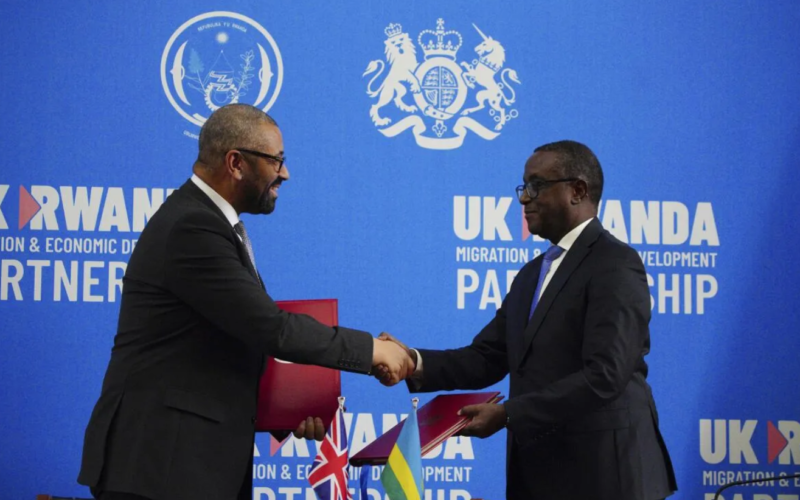The United Kingdom’s political landscape is in upheaval as emergency legislation, titled the “Safety of Rwanda Bill,” is introduced by the government to revive a contentious deportation scheme to Rwanda. The move follows a recent ruling by the UK Supreme Court deeming the government’s proposed plan, aimed at sending thousands of asylum seekers and migrants to Rwanda, as unlawful. The bill, set to be expedited through the House of Commons, bypasses sections of the Human Rights Act (HRA) and other legal provisions, sparking controversy and leading to the resignation of immigration minister Robert Jenrick due to policy disagreements.
The emergency legislation seeks to override the UK Supreme Court’s November 15 ruling that found the government’s deportation scheme to Rwanda to be in violation of the law. By designating Rwanda as a safe country, the draft bill circumvents specific sections of the HRA and provides the courts with the authority to disregard injunctions from the European Court of Human Rights blocking deportation flights.
The unveiling of the bill has intensified political turmoil, resulting in the resignation of immigration minister Robert Jenrick. In his resignation letter, Jenrick expressed strong disagreements with the government’s immigration policy direction and labeled the proposed laws as “a triumph of hope over experience.” The move highlights divisions within the ruling Conservative party, creating uncertainty about Prime Minister Rishi Sunak’s political standing.
Prime Minister Rishi Sunak has defended the emergency law, emphasizing its role in preventing the deportation plan from being entangled in prolonged legal battles. Sunak contends that the legislation allows Parliament to decide on immigration matters, asserting control over borders and deterring perilous journeys.
The publication of the law coincides with the signing of a new treaty by British Home Secretary James Cleverly during a visit to Rwanda’s capital, Kigali. The treaty includes commitments regarding the treatment of asylum seekers and migrants sent to Rwanda. However, Rwanda’s Foreign Minister Vincent Biruta has warned of potential consequences, stating that any breach of global conventions could lead to Rwanda withdrawing from the Migration and Economic Development Partnership.
The deportation plan to Rwanda is a central component of Prime Minister Rishi Sunak’s immigration policy. Its success is crucial for the Conservative Party, facing challenges in opinion polls ahead of an expected election next year. Sunak, born to immigrant parents of Indian descent, has committed to initiating deportation flights in the spring of next year.
The controversial deportation plan faced legal challenges, with a London Court of Appeal ruling in June 2022 that it was unlawful under Britain’s Human Rights Act. The first deportation flight was blocked by an injunction from the European Court of Human Rights. The recent decision by the UK Supreme Court affirmed that the plan could lead to human rights abuses, considering the non-refoulement rule and the UN refugee agency’s evidence of Rwanda breaching the rule in a deal with Israel.
As the “Safety of Rwanda Bill” takes center stage amid political turmoil and government resignations, the controversial deportation plan remains a pivotal issue in UK immigration policy. The international repercussions of potential human rights abuses and the complex legal landscape surrounding the deportation scheme underscore the challenges faced by Prime Minister Rishi Sunak’s administration in navigating the delicate balance between immigration control and adherence to global.








